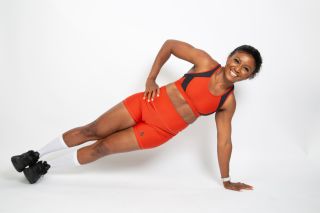Dementia
The Exercise That Helps Fight Dementia at Any Age
Researchers say this activity can help almost anyone control cognitive decline.
Posted October 22, 2023 Reviewed by Lybi Ma
Key points
- Lifestyle interventions like exercise are often recommended to help prevent or delay dementia.
- For some people, specific types of exercises make more sense than others.
- The World Health Organization recommends resistance exercises, especially for older people.
- A physical therapist or licensed trainer can adapt any exercise to suit individual needs and prevent injury.

Following a healthful diet, being physically active, using stress management techniques, getting a good night’s sleep, and maintaining overall emotional well-being are all evidence-based tools recommended to improve the lives of people with mild cognitive impairment (MCI) or dementia and even delay or prevent the development of these conditions in those who show no signs of impairment. A recent review of more than 60 studies from around the world found that, of all these “lifestyle medicines,” exercise is likely the most effective and significant intervention.
While those with MCI lead functional lives and the majority won’t progress to a more serious decline in mental capacity, approximately one-third will advance to dementia. Conventional medical treatments for dementia and Alzheimer’s disease (which accounts for up to 70 percent of all dementia cases) are sorely lacking, and those that have been developed show limited effectiveness. Because of the difficulty in finding effective medical treatments, researchers and medical experts also turn to alternative, non-pharmaceutical recommendations, particularly increased physical activity.
A wide variety of physical activities are also associated with more than 30 percent reduction in future development of cognitive decline and memory loss in people who currently show no signs of either. The World Health Organization, WHO, specifically recommends resistance exercise as an effective activity, particularly for older people.
Resistance training includes any of the many exercises that involve pulling or pushing against the resistance of another object, including your own body. Resistance exercises include squats, chair squats, leg lifts, leg extensions, hip extensions (deadlifts), knee lifts, step-ups, calf raises, lunges, push-ups, wall push-ups, chin-ups, planks, side planks, rowing, and bench pressing. Add-on aids, such as elastic resistance bands, are often used to add more physical tension to resistance exercises.
One Brazilian multi-university review study broke down the evidence behind the WHO recommendation. Resistance exercises protect brain cells and provide cognitive benefits because they reduce inflammation and also reduce the formation of amyloid plaque that damages brain cells and their networks to a degree that disrupts language, reasoning, metabolism, and social behaviors, and eventually leads to death. Resistance exercises have a positive effect not only on brain health but also on bone density, balance, muscle strength, and overall physical function.
All lifestyle interventions—diet, exercise, and everything that goes into psychological well-being—appear to be important factors associated with the preservation of cognitive function, executive function, and memory in adults with and without signs of MCI or dementia. In the case of MCI, lifestyle improvements were especially significant and effective when used as an early intervention. In terms of clinical significance, or the scientific measurement of a meaningful outcome for a significant number of cases, exercise is the current leader of them all.
Note: Speak with your health care provider, physical therapist, or licensed or certified trainer before attempting any new exercises, especially as you get older. A good physical therapist or licensed trainer can adapt most standard exercises to fit your specific needs and prevent injury.
References
Ding Z, Leung P-Y, Lee T-L, Chan AS et al. Effectiveness of lifestyle medicine on cognitive functions in mild cognitive impairments and dementia: A systematic review on randomized controlled trials. Ageing Research Reviews. April 2023 (86)
Azevedo, CV, Hashiguchi D, Campos HC, Figueiredo EV, et al. The effects of resistance exercise on cognitive function, amyloidogenesis, and neuroinflammation in Alzheimer’s disease. Frontiers in Neuroscience. March 2, 2023 (18)


